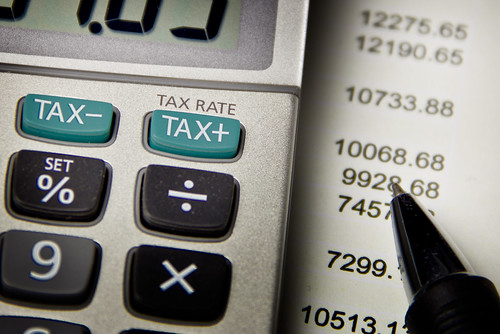Learning the Money Language
The food business is attractive to people who love to create and serve excellent food to their customers. But a food truck owner also needs to have some additional skills, including business smarts and financial know-how. Here are the terms you need to manage your food business intelligently.
Bottom Line/Net Income

Image via Flickr by kenteegardin
A company’s bottom line is their net worth after all debts are paid. To calculate net worth, add all assets of the business, including income. Subtract all debt, and you have the net worth (or bottom line) of the business. The name is derived from the location of the net worth value on a ledger, usually the bottom rightmost entry.
Capital Expenditures
Capital expenditures are any money you spend, either in cash or on credit, that return a benefit to the business. Capital expenditures are differentiated from disposable goods in that they carry a value beyond a one-time use. Capital expenditures include the truck or cart you purchase from Russell Ventures & Mobile Kitchens, , the equipment used in the cart, computers, refrigerators, and other non-disposable, non-consumable goods. The food you purchase, napkins, condiments, and other consumables are not capital expenditures.
Concentration
The term concentration refers to the amount of business you do with a single customer. For food truck owners, this might be a venue that allows you to set up and serve regularly, such as an airport, office building, or amusement park. The higher concentration of business you have with a single client, the more you are at risk. When you have many customers to depend on, the loss of one isn’t disastrous.
EBITDA/Gross Income
The acronym EBITDA stands for “earnings before interest, tax, depreciation, and amortization.” It is the actual gross profit of the business, before deducting debt and other losses. While it is far less telling of a business’ health than the net profit (or bottom line), it is a good indication of how sales and marketing are progressing. Gross income is figured by calculating all the business’ income without subtracting any debt or payments on debt.
Equity
Equity in a business means exactly what it does in a home mortgage. It is the amount of the business you own, above and beyond any debts the business’ has. What differentiates equity from net worth is that equity is split among partners according to their partnership agreement. For example, if you went in with another owner at 50-50, your equity in the business is half what the net worth of the business is.
Fixed Cost
Fixed costs are the ones that are predictable and don’t fluctuate from month to month, no matter what the sales are. This includes payments made on the truck and equipment, employee salaries, and utility expenses.
Variable Cost
Variable costs are the opposite of fixed costs. These are the costs that fluctuate from month to month according to how much you sell. Variable costs include the food and supplies that you buy less of when business is slow and more of when business is heavy.
It pays to spend some time learning finance and basic business principles so your food truck business isn’t just enjoyable, it’s also profitable.
